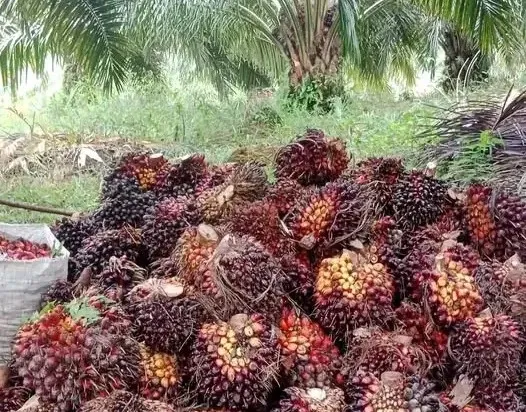 |
| Palm oil is not inherently evil. Photo credit: Tantoya. |
SEKADAU, WEST KALIMANTAN — Under the scorching midday sun of Borneo’s equatorial belt, Tanto Yakobus walks between rows of palm oil trees with a quiet sense of purpose. He is not a corporate manager nor a land broker — he is an independent farmer, tending to just a few hectares of oil palm he planted over a decade ago. His harvest? Modest. His outlook? Upbeat.
“One hectare, if well cared for, can yield 1.5 tons of fresh fruit bunches per cycle,” he said, wiping sweat from his brow. “At Rp2,800 to Rp3,000 per kilo, that’s a livelihood. Not luxury, but enough to live with dignity.”
For smallholder farmers like Tanto across West Kalimantan, oil palm is not the villain it's often made out to be in international discourse. Instead, it is a vital economic pillar — and, increasingly, a symbol of autonomy and resilience. With careful cultivation and market access, many say palm oil has given them the ability to send their children to school, build permanent homes, and escape generational poverty.
A Rare Path to Prosperity in the Hinterlands
“Show me another crop that delivers that kind of reliable income,” said Fidelis, an independent farmer from Sanggau, a region with deep Dayak roots and increasingly visible palm plantations.
“Rice is seasonal. Rubber prices fluctuate wildly. Cocoa comes and goes. Only palm, if done properly, provides steady cash.”
Palm oil, long demonized in global environmental debates, has become — paradoxically — one of the few viable routes to rural prosperity in Kalimantan. And while large corporations have dominated headlines and land disputes, it's the smallholders, or petani mandiri, who are now emerging as key voices in the conversation.
“Palm oil is not inherently evil,” Fidelis added. “It becomes destructive only when it is unchecked, when big companies trample over indigenous land and the environment. But for us smallholders? It’s our future. It’s how we buy medicine, books, and rice.”
He stressed, however, that this blessing must be managed wisely. “Let’s not repeat mistakes. We must uphold environmental standards, like those in the RSPO (Roundtable on Sustainable Palm Oil), and ensure that profits trickle down to our communities — not stop at the top.”
New Government, New Direction?
This more grounded, human-scale vision for palm oil development may soon receive greater national attention. Indonesia’s new president, Prabowo Subianto, has publicly stated plans to expand palm oil cultivation as part of a broader strategy to bolster food and economic security. His administration signals a fresh, if controversial, commitment to the sector — including diversification and increasing planted areas.
Yet experts are raising a red flag.
“We don’t need more expansion by corporations. That era must end,” said Ir. Petrus Gunarso, Ph.D., an environmental scientist and seasoned palm oil researcher. “If expansion is necessary, it should be for independent farmers — people who grow palm on their own ancestral land, who manage it responsibly, who live where they work.”
Gunarso, who has authored three books on sustainable palm oil and forest governance, believes this shift is vital for fairness and long-term environmental balance. “Give the opportunity to farmers who have been marginalized by large-scale concessions. Let the profits stay in the village, not be flown to Jakarta or abroad.”
Rethinking the Narrative
International coverage of palm oil often frames the industry through the lens of deforestation, orangutan habitat loss, and carbon emissions. While these issues are real, local communities argue that such portrayals ignore complexity — and sometimes, justice.
“In the West, they see satellite images of cleared forest and think ‘disaster,’” Tanto said. “But they don’t see my children going to school because of this plantation. They don’t see how this land used to be abandoned scrub.”
The challenge, according to many here, is not to abolish palm oil — but to democratize it. This means secure land tenure for indigenous and local farmers, strict enforcement of environmental standards, and greater support for smallholder access to sustainable certifications and better markets.
“Palm oil must be a blessing,” Fidelis repeated. “Not a curse. Not because it’s inherently good, but because we choose to make it that way.”
And in the quiet groves of West Kalimantan, where rubber trees once stood and pepper vines have long withered, a new model is taking root — one that may yet redefine the legacy of the world’s most controversial crop.
Would you like a photo or visual to accompany this piece?
-- Rangkaya Bada

Post a Comment
Thank you for your comment